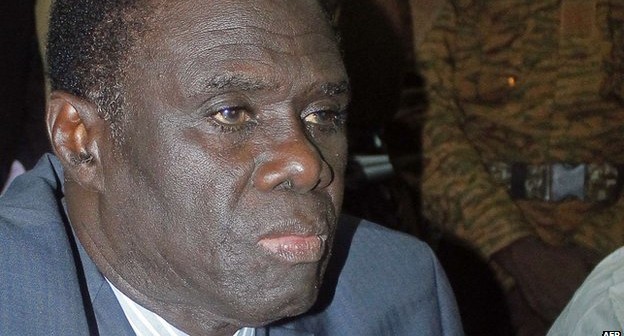Nov. 17 (GIN) – Political and military leaders in the West African nation of Burkina Faso have settled on a former foreign minister, Michel Kafando, to oversee a year-long transition to elections. The country has been without a leader since the former president was ousted by the citizens.
Blaise Compaore was overthrown on Oct 31. He escaped to neighboring Ivory Coast after tens of thousands of citizens, angered over his attempt to add extra years to his 27 year rule, rallied in the streets. Compaore first seized power in a coup in 1987 and went on to win four disputed elections.
Kafando, 72, was ambassador of Burkina Faso at the United Nations and for one year president of the Security Council, one of several senior posts he held during Compaore’s presidency.
His candidacy was proposed by the army.
Paul Ouedraogo, the archbishop of the southern Bobo-Dioulasso diocese, was considered for the post but ruled himself out. “I don’t anticipate it. The cleric doesn’t engage in this kind of power,” he said in a press interview.
It’s not clear whether Kafando will satisfy the population which was considered “low income” by the World Bank. Unmet needs include schools, running water, housing and jobs.
A popular socialist president, Thomas Sankara, gave the country the name Burkina Faso for “land of honest men.” He led the country from 1983 until 1987 until he was murdered and replaced by the ousted president.
At the time of his assassination Sankara was just 37 and had ruled for only four years.
But his policies and his vision are still cherished both by some locals who were around when he was in power and, significantly, by many young people who were born since his death.
Burkina Faso has significant reserves of gold, but processing cotton is the economic mainstay for many Burkinabes.
African Union chief Nkosazana Dlamini-Zuma praised the people of Burkina Faso “for their political maturity and sense of responsibility” and called for “a smooth transition under the direction of civil authorities”. w/pix of M. Kafando







